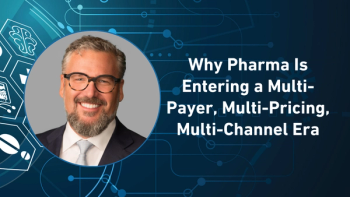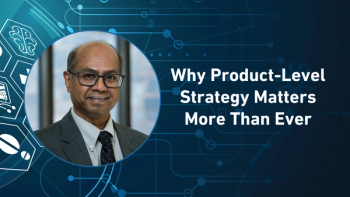
- Pharmaceutical Commerce - November/December 2009
Cargo Theft Emerges as a New Biopharma Worry
The signs are apparent that there is organized criminal activity focused on pharma logistics By Nicholas Basta
There are two ways to think about in-transit pharmaceutical security to get real serious, real fast: one is to realize that if a single shipment of product gets lost or stolen, the entire lot to which that shipment belonged might be subject to recall—and ask yourself, how much is my product worth on a per-lot basis?
The second, more conceptual perspective is to realize that all of the PhD scientists’ work in developing a new pharmaceutical, the expert manufacturing, marketing and sales management, and the high-cost advertising or promotion for that product comes down to a single truck driver, unsupervised, making a delivery to a warehouse or distribution point. A brand’s reputation could literally be riding on the wheels of a tractor-trailer zooming down the interstate in the night.
Thoughts like these—combined with evidence of an uptick in the value of pharmaceuticals being stolen or diverted during delivery—are weighing heavily on the minds of corporate security directors these days. The most direct evidence of this comes from FreightWatch International, a supply-chain security company that collects data on cargo thefts in US trucking. Their latest compilation (Fig. 1) shows worrisome frequency around major transportation hubs and interstate highways, with a slightly higher frequency in southern states.
“Cargo theft has been around for a long time for any shipped goods, and the pharma industry has been dealing aggressively with the particular problems of controlled-substances theft,” says Dan Burges, director of intelligence at Austin, TX-based FreightWatch. “But there are now clear indications of organized theft rings going after high-value pharmaceuticals of any type, and there has been an increased frequency of thefts in the past couple years.”
Another indicator of the concern is an industry-led effort to address in-transit theft called the Pharmaceutical Cargo Security Coalition. The group has been meeting for several years, and attendance has grown from 60 corporate security directors two years ago to 120 last year, and well over 200 at this years’ meeting, held in mid-November, according to the group’s leader, Charles Forsaith, security director at Purdue Pharma (see box).
FDA attention
More focus on cargo theft occurred this spring and summer as FDA sent out cautionary warnings about largescale thefts that, in at least one case, resulted in diverted product re-entering the legitimate supply chain and being delivered to patients. Announcements included:
Almost 36,000 cartons of albuterol sulfate vials from Dey L.P. (Napa, CA) stolen in early August in McKinney, TX. Dey sent out an announcement advising that “pharmacists are encouraged to verify pedigree documentation for all purchases of Dey-labeled” albuterol.
Teva Pharmaceuticals lost almost 1,000 cartons of Copaxone (glatiramer acetate) in a theft in April; Copaxone is a temperature-controlled product that must be stored below 74° F and out of sunlight; Teva had to recall the remainder of that lot.
Novo Nordisk lost 129,000 vials of Levemir (recombinant-DNA insulin) in a North Carolina robbery in the
spring. In June, it and FDA announced that the product—which requires refrigerated storage—had shown up in a medical center in Houston; subsequently FDA reported that it “has received multiple reports of patients who suffered an adverse event due to poor control of glucose levels after using a vial from one of the stolen lots.” An August followup reported that the stolen insulin was still showing up and that only 2% of the vials had been accounted for.
The biggest-value recent theft—which didn’t produce an FDA alert because the product was recovered within minutes of being stolen, occurred along the PA Turnpike in May. An Eli Lilly shipment of insulin valued at $37 million was stolen (along with the truck) at a turnpike rest stop, but the truck was located a few miles down the road by quick-acting state troopers; the shipment was intact and allowed to proceed, according to industry sources.
“In cases where high-value biopharmaceuticals are stolen, and where the entire lot has to be recalled, you could have a situation where a life-saving product is off the market for several months,” says Purdue’s Charles Forsaith. “The lost value of the product itself and the brand reputation can be enormous.”
Mention of verifying drug pedigrees or tracking specific lots through the supply chain harkens back to the arguments for track-and-trace systems and item-level serialization of pharma products. But while some individual pharma companies are taking such measures (see story UPS-Genzyme story starting on p. 8), an industry-wide or national tracking system has yet to be formalized.
Loss prevention hierarchy
Transportation carriers stake their business reputation on minimizing theft and loss, so it’s no surprise that many of them have been dealing with in-transit theft all along. UPS, whose Healthcare Logistics business unit handles billions of dollars of pharma shipments annually, applies many of the loss-prevention measures of its overall business to healthcare products, along with some services specific to pharma.
There is a hierarchy to loss prevention measures, starting with the basic components of any shipment: the package itself; the vehicle; the driver; the route chosen; and the origin and destination of the shipment (Fig. 2). “Generally speaking, the fewer handoffs you have, the better,” says Dan Gagnon, a business director at UPS Healthcare Logistics. “Thefts can occur at loading docks, in transit or at destinations.” UPS provides consulting services to its clients to review security procedures and made recommendations; in some instances this can even extend to the secondary (case) packaging of product. “You want to have labeling that does not make the contents of the package readily known to a handler,” he says.
It’s now common practice to have GPS or cellular linkages between vehicles in transit and a central station; carriers can actively monitor the shipment in real time, or simply record shipping details as each intermediate point is reached. At UPS, this capability is matched with how clients specify their deliveries—shipments can be required to be hand-carried to not just a specific address, but a specific location at an address. A service called Proactive Response includes not only delivery specifics, but also a “pedigree” (not to be confused with pharma industry pedigree documentation) that allows the shipment to be tracked in real time, and with the ability to intercept a shipment if it has gone astray.
Most national carriers, especially those that handle high-value pharma shipments, provide enhanced security services. Companies commonly mentioned include FedEx Custom Critical; DB Schenker; DHL; MD Logistics; Boyle Transportation; Panther Expedited Services; and World Courier. A new entrant in the field is National Retail Systems (NRS; North Bergen, NJ), which has been in the business of delivering high-value consumer goods, such as electronics or fashion items, for over 50 years, and is now negotiating shipping contracts with several leading pharma companies, according to John Tabor, director of security at the firm.
NRS touts its dedicated system of secured trucking, which operates nationwide (including several partners). The company has secured trucking centers at 25 locations around the country; trucks often go from secured center to secured center, rather than simply taking the most direct route. The truckstops feature secured fencing, high-visibility lighting and elaborate check-in check-out procedures. Additional services like driver teams or having a second vehicle following the first are also available, says Tabor.
Another protective measure is to maintain close communications with local law enforcement. Interstate cargo theft is a federal offense and normally the FBI would be involved, says Tabor, but they are rarely on hand when a theft is in progress. “We have contacts in hundreds of police jurisdictions,” he says. “They are in a position to act when an incident has occurred.”
Do’s and don’ts
Freightwatch, as well as other companies like LoJack Supply Chain Integrity (Forney, TX) provide devices, monitoring services and consulting to enhance transportation protection for carriers. “We provide a supply-chain security assessment as a first step,” says Freightwatch’s Burges. “The goal is to get a handle on the makeup of the distribution system, what shipping segments have security problems, and what kinds of monitoring systems to set up.” Follow-on steps could include posting a Freightwatch risk manager at the company’s site.
High-tech devices like these may become part of the escalation of criminal activity and countermeasures going on today. But they come at a cost: “Like many other business activities, you have to do a cost/benefit analysis,” says Burges.
Meanwhile, the list of routine precautions and countermeasures is growing. Purdue Pharma’ Forsaith and others cite precautions such as these:
Perform background checks on drivers; review the background checking process of carriers or other subcontractors;
send trucks with full fuel tanks and a requirement not to stop for the first 200 miles (to make it harder for criminals to identify a truck as it leaves a pharma warehouse;
Where possible, have full, dedicated truck loads. Use security seals on trailers; use two-driver teams where justified;
Use some identifying name or logo on trucks (and not necessarily a company logo), not the commonly used plain-white trucks, which are harder for law enforcement to track on the highway;
Build, or contract for, online monitoring services to track the movement of high-risk shipments.
Join in industry activities like the Pharmaceutical Cargo Security Coalition, ASIS International (Alexandria, VA) or the regional Cargo Security Councils.
As the value for pharmaceutical shipments increases, so will the threat of highway piracy to interdict those shipments. But by putting up some reasonable defenses, manufacturers and their logistics contractors can make theft simply too difficult to be desirable for criminal elements. But don’t count on the problem disappearing anytime soon. PC
Articles in this issue
almost 16 years ago
J&J/McNeil widens a recall of contaminated Tylenolalmost 16 years ago
Impax Labs Enjoys the Fruits of Its IBM Cognos Investmentalmost 16 years ago
Short Takesalmost 16 years ago
Industry Tackles the New REMS Hurdlealmost 16 years ago
Pharma Gets a 'Just in Time' Speedup With the Switch to Digital Printingalmost 16 years ago
Getting Value From End-of-Life-Cycle Pharmaceuticalsalmost 16 years ago
HDMA Analyzes Evolving Specialty Distribution Businessalmost 16 years ago
AMR Research Selects 'Healthcare Top 25' for Supply Chain ExcellenceNewsletter
Stay ahead in the life sciences industry with Pharmaceutical Commerce, the latest news, trends, and strategies in drug distribution, commercialization, and market access.



